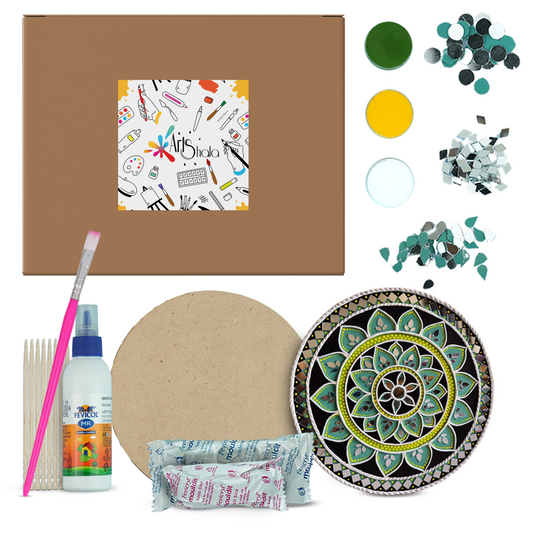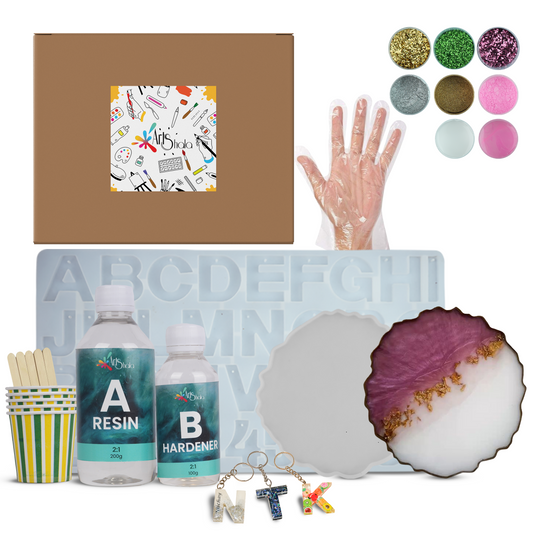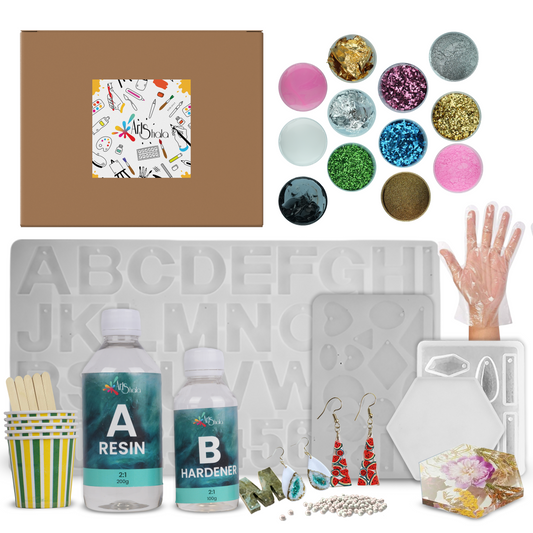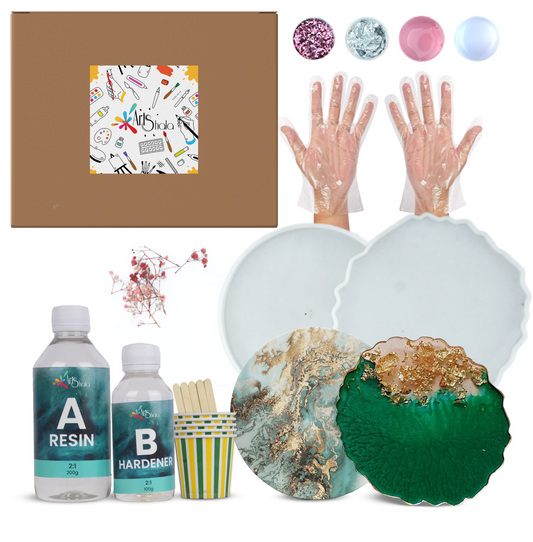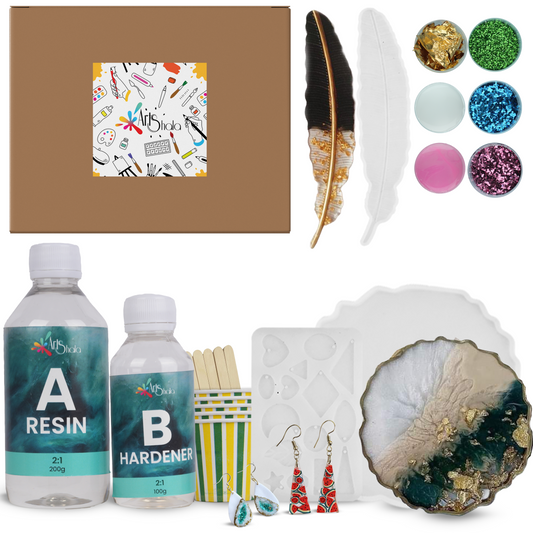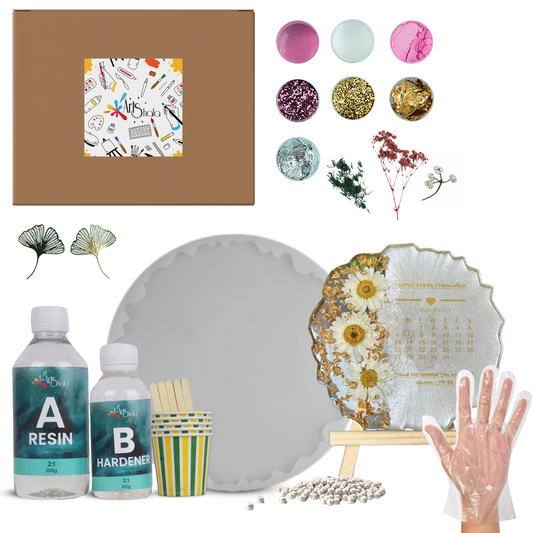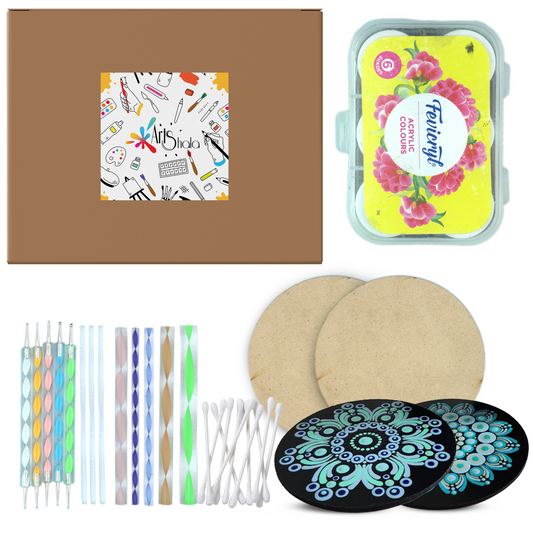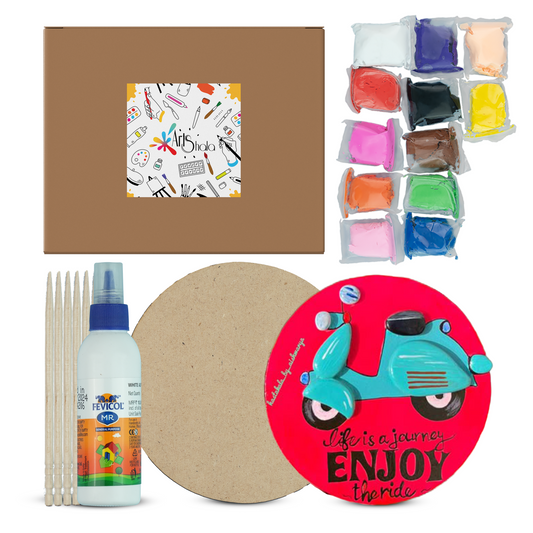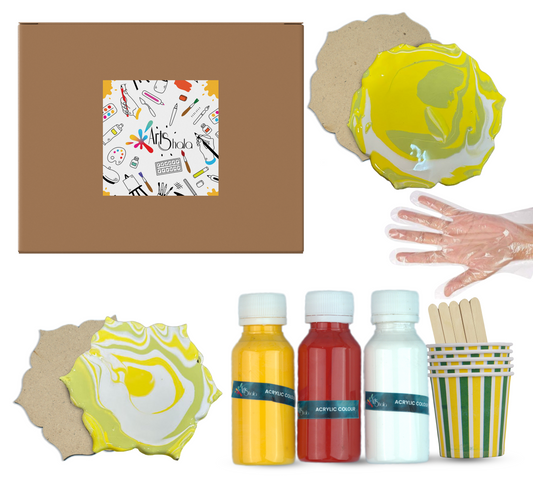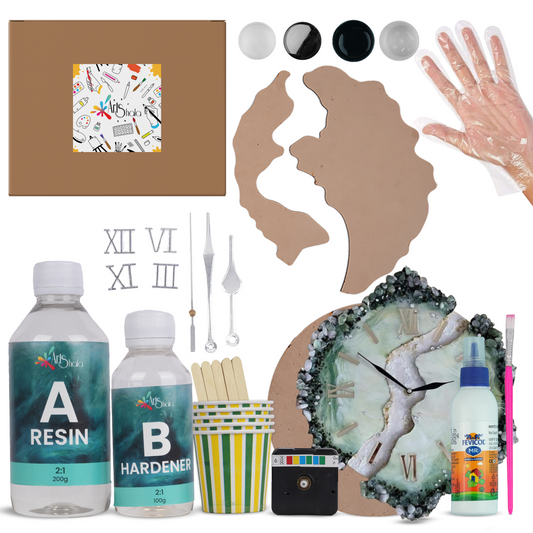What Materials Are Typically Used in Resin Art Workshops?
Resin art has become immensely popular as a creative and versatile medium. Whether you're a beginner looking for a new hobby or an experienced artist looking to enhance your skills, resin art workshops are a great way to learn new techniques and explore your artistic abilities. But what about the materials typically used in these workshops?
This blog will explore the primary material generally used in resin art workshops. These include resin and hardeners, pigments and colourants, moulds, containers, and other essential tools and accessories. These materials play a crucial role in the resin art process and contribute to your artwork's overall aesthetics and durability.
The Essential Materials Used in Resin Art Workshops
Resin and Hardener
Resin and hardener are the must-have parts of creating resin art. Resin is a viscous liquid that acts as a binder and will give a glossy finish to your artwork. Generally, two types of resin are used in resin art workshops: epoxy resin and polyester resin. Epoxy resin is more considered because of its ease of use, versatility, and durability. This makes it ideal for various applications such as coating, pouring, and casting. On the other hand, polyester resin comes with different properties, including an impressive resistance to UV light and a comparatively faster curing time. On the other hand, the hardener is a catalyst that causes the resin to harden and cure.
Tips While Selecting Hardener for Resin Art
- Understand Your Application: Consider the specific requirements of your application. Pay attention to the desired physical and chemical properties, cure speed, and pot life.
- Consider Curing Temperature: Most epoxy hardeners need high temperatures for complete curing. Ensure your curing process reaches the required temperature for better polymerisation.
- Evaluate Hardener Classes: Learn the characteristics of commonly used epoxy hardener classes like phenols, anhydrides, amines, and thiols. Consider factors like oxidation resistance, chemical resistance, and latency to select the best possible means.
- Prioritise Health and Safety: Despite having excellent end properties, aromatic amines have health concerns. To play on the safe side, consider cycloaliphatic and aliphatic amines instead.
- Consider Thiol Hardeners for Fast Curing: Consider Thiol hardeners if your art piece requires fast or room-temperature curing. They react quickly with epoxy resins, making them perfect for DIY adhesives and chemical anchors.
- Seek Expert Advice: Consult with your workshop artists if you still need to select a suitable epoxy hardener. They will provide guidance and support to help you choose the most appropriate hardener.
Pigments and Colourants
Pigments and colourants are essential for adding vibrant and eye-catching colours to your resin art. The choice of pigments depends on your desired colour palette and the effect you want to achieve. Mixing pigments with resin will allow you to create unique and personalised colours. It's essential to use pigments specially designed for resin art, as they are formulated to blend better with the material.
Tips While Selecting Pigments and Colourants for Resin Art
- Consider the Medium: Different dyes and pigments work best with specific mediums. For instance, resin or epoxy dye is explicitly designed for resin castings. Mica powder is known to provide a solid finish, which is perfect for creating solid resin shapes or letters. On the other hand, eyeshadow pigment can be a handy alternative for quick colour additions, and alcohol-based ink offers intense colours but requires careful application.
- Intensity and Transparency: Understand whether you need a vibrant, intense colour or a more subtle, transparent effect. Resin dye and alcohol-based ink provide potent colours with minimal quantity. Mica powder creates opaque finishes that still allow light to pass through, mimicking stained glass. Acrylic paint makes more subdued colours and focuses on generating flow and depth within the resin.
- Variety of Colours: Mica powder and acrylic paint will be your best options if you enjoy experimenting with various colours. Mica powder comes in multiple pigmented shades, allowing you to mix and match as much as you require. Acrylic paint also provides a wide array of vibrant hues from various brands.
- Mixing and Distribution: Consider how your chosen colourant reacts with the resin. Resin dye and mica powder tend to disperse quickly and evenly. Eyeshadow can be mixed with a toothpick for a beautiful aesthetic. At the same time, alcohol-based ink is advised to be added during the curing process to avoid affecting the resin's initial chemical reaction. Acrylic paint creates swirling patterns, enhancing the resin's flow. Glitter, notably finer glitter dust, remains suspended, providing equal distribution throughout the resin.
Moulds and Containers
Moulds and containers are must-have items in resin art workshops to shape and contain the resin. Molds come in various shapes and sizes, from simple geometric forms to intricate designs. Silicone moulds are commonly used due to their flexibility, durability, and ease of release. They help you create complex patterns and structures with your resin.
You use containers, such as cups or mixing pots, to measure and mix the resin and hardener in required ratios. It's important to choose containers resistant to resin, as some materials are known to react with or get damaged by the resin. Consider graduated containers, which are handy for accurate measurements and help choose proper resin-to-hardener ratios.
Other Tools and Accessories
Apart from the essential materials mentioned above, resin art workshops often require more tools and accessories. Some of the commonly needed tools and accessories include:
- Stirring Sticks: These are necessary to mix resin and hardener.
- Heat Gun or Torch: It removes any air bubbles trapped in the resin.
- Palette Knife: It comes in handy for creating textures and layering colours.
- Measuring Tools: Measuring cups, syringes, or scales help maintain the resin-to-hardener ratio.
- Protective Gear: Wearing gloves, goggles, and respirators protects you from potential hazards.
Conclusion
Resin art workshops provide an immersive and fulfilling experience for artists of all skill levels. You can confidently embark on your resin art journey by understanding the materials commonly used in these workshops. Each component is crucial in creating stunning resin art, from resin and hardeners to pigments, moulds, and various tools.
If you're looking for a reliable and knowledgeable source for resin art workshops, Arts Shala is the perfect choice. With experienced artists as instructors, they offer a comprehensive learning experience and provide expert guidance throughout your resin art journey. Arts Shala caters to all skill levels and ensures a supportive and inspiring environment, from beginners to professional artists. Contact Us now and let your creativity shine!



